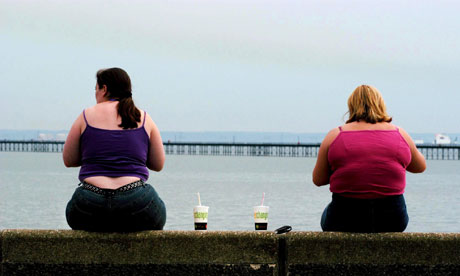
Time was when Tyne and Wear held intellectual sway across much of Europe through scholars such as the Venerable Bede. Maybe those days are coming again.
In addition to Newcastle university's exceptional skills in science and medicine, and Northumbria's expertise in dialect studies and other disciplines, Sunderland is now challenging the world with some highly practical philosophy.
It comes from Dr Peter Hayes, senior lecturer in politics, who publishes a book today called The Philosophy of Dieting, which aims to take this essential practice beyond the world of diet clubs and pills. He has examined the essential corpus of philosophical works for dietary tips, both from gloomily ascetic characters such as Thomas Hobbes to cheery souls of the likes of Immanuel Kant.
The book makes its debut at the People's Bookshop in Durham this evening, Wednesday 30 May, at 7.30pm. As well as being an imaginative take on philosophy, which gets across the teaching of great minds in an accessible way, it also comes with a robust, possibly even northern, dose of plain-speaking. Hayes says:
For far too long we have been taking advice on how to diet from doctors and nutritionists. Their advice has, frankly, been useless, and now we are in the midst of an obesity epidemic. If we are going to get a grip on this crisis and lose weight we need a completely different approach, one that is inspired by philosophers such as Plato, Hobbes and Locke.
To be able to drop into table talk the murmur "I'm trying the Plato diet" would certainly have cachet; and there is much fun to be had in trading learned quotations. The most apposite is probably Feuerbach's 'You are what you eat', probably derived from the earlier thinker Brillat-Savarin and specially good if you speak German. The original is 'Der Mensch ist was er isst'.
There's Brecht, too, saying: 'First food, then morals' (Erst kommt das Fressen, dann die Moral), although that might be considered to be anti-dieting advice. Hayes prefers the stern 'diet contract' suggested by Hobbes, in which the subject promises to lose weight to the sovereign who administers punishment if they fail. Hayes adds:
A second and perhaps a more appealing way to lose weight is put forward by the great democratic philosopher John Locke whose work formed the basis of the American constitution. He also gave lots of explicit advice on dieting, which he linked to a surprisingly sophisticated understanding of the workings of our metabolism. Locke's diet is simple, easy and cheap to follow.
Perhaps most relevantly, the book suggests a flaw in democracy which Hayes sees being played out in current world politics, although it goes back to classical times. Appropriately, to a Greek. Hayes says:
The democracies of Europe, Greece in particular, have allowed people to indulge themselves and be greedy. Now austerity measures are being imposed on these states and the democratic wishes of the people ignored.
Such problems caused by democracy are not new; they were well understood by the Greek philosopher Plato, who explained that democracy can make us overweight as well as adversely affecting the economy. He argued that in a democracy people are able to follow their desires and impulses in an unhealthy way.
The result is that they become fat, or have a weight that fluctuates up and down. In other words, Plato explains how the obesity crisis, like the financial crisis, is linked to democracy.
What to do then? Dr Hayes' book tells all; or at least, more.

